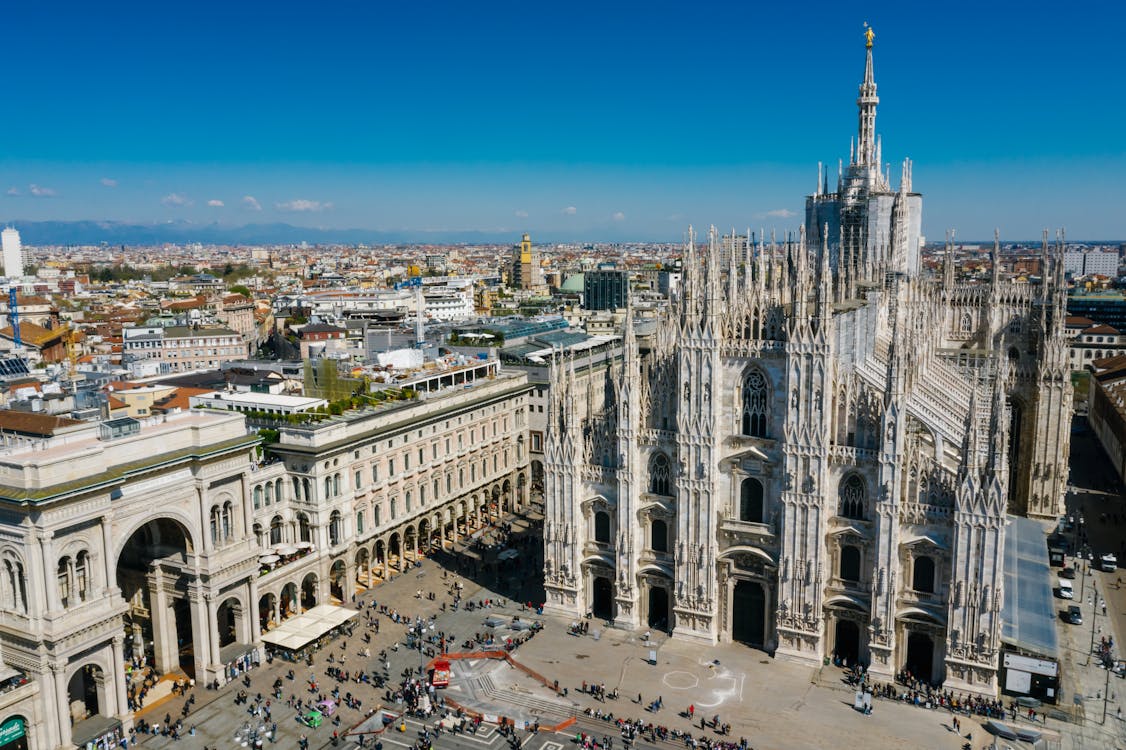
Italy has one of the world’s most dispersed and culturally vibrant diasporas. Over generations, Italians have moved out in search of work, opportunity, or escape. To stay tied to their heritage, to support each other, and to promote Italy’s culture beyond its borders, they have built institutions and associations—some by law, others by collective will. This article surveys the most important groups of Italians abroad, and then offers a spotlight: a curated list of the top 20 diaspora associations globally.
These structures do more than nostalgia: they preserve identity, channel influence, open doors, and weave communities across time and distance.
What We Mean by “Institutions of Italians Abroad”
When we say “institutions of Italians abroad,” we refer to entities that:
-
Are formal in structure (with bylaws, membership or representation)
-
Engage in cultural, social, political, educational, or representational functions
-
Cover Italians living outside Italy or descendants of Italian emigrants
-
Bridge local communities with Italy’s governmental, diplomatic, or cultural apparatus
These range from official bodies (Comites, CGIE) and semi-governmental (Cultural Institutes) to grassroots associations and diaspora politics.
Core Italian Institutions Abroad
Comites – local representation in consular districts
Comites (Comitati degli Italiani all’Estero) are locally organized representation bodies of Italians abroad. Their role, codified in Italian law (e.g. Law 286/2003), is to assess collective needs (social, cultural, educational), propose initiatives, support consulate-led efforts, and liaise with Italian government structures. Over 115 Comites exist globally, covering regions from North America to Asia.
CGIE – the national diaspora council
At a higher level, the General Council of Italians Abroad (CGIE) is a national advisory body that represents diaspora interests at the level of Italy’s Parliament and Government. It has 94 members; 65 are elected by Italians abroad every five years. The CGIE helps coordinate policy, ensures diaspora voices reach central decision-making, and fosters coherence among overseas institutions. Italian Consulate SF+1
Istituti Italiani di Cultura (Italian Cultural Institutes)
Operating in capitals and major cities, these institutes promote Italian culture, art, film, language, and scholarship. They host exhibitions, lectures, festivals, and teach Italian. They are key soft-power nodes for Italy, collaborating with local universities, museums, and cultural agents.
Società Dante Alighieri
Founded in 1889, Società Dante Alighieri is dedicated to spreading Italian language and culture. With branches in sixty-plus countries, it offers certified language exams (e.g. PLIDA), runs cultural events, supports local language schools, and keeps diaspora Italians connected to linguistic heritage.
Uni-Italia & Italian Talents Abroad
Uni-Italia, a consortium of ministries and academic bodies, plays a strategic role in internationalizing Italian higher education—attracting foreign students, promoting exchange, and strengthening Italy’s academic presence abroad.
Italian Talents Abroad (TIE, under Aspen Italia) is a network of Italians working abroad who bring knowledge and connections back to Italy. With ~182 members in ~34 countries, it fosters leadership, collaboration, and transnational impact.
Top 20 Italian Diaspora Organizations Globally
Now, embedded within this institutional tapestry are dozens of diaspora associations. Below, twenty of the most prominent or influential:
-
Order Sons and Daughters of Italy in America (OSIA / OSIA) — U.S. — One of the oldest and largest fraternal cultural organizations, with over 600,000 members and 2,800 lodges. Wikipedia
-
National Italian American Foundation (NIAF) — U.S. — Key in cultural diplomacy, scholarship funding, heritage travel, and strengthening U.S.–Italy relations. The National Italian American Foundation
-
Italian American Studies Association (IASA) — U.S. — Academic association for research in history, sociology, and culture of Italians in America. italianamericanstudies.net
-
Italian American One Voice Coalition (IAOVC) — U.S. — Advocates against stereotyping, promotes dignity in representation of Italian Americans. Wikipedia
-
South American Union of Italian Emigrants (USEI) — South America — Political party representing Italians abroad, especially in Argentina and Brazil. Wikipedia
-
Associative Movement of Italians Abroad (MAIE) — South America — Diaspora-political movement with representation in Italian Parliament. Wikipedia
-
Mazzini Society — U.S. / historical — Founded by Italian anti-fascist exiles in 1939, active in political and cultural mobilization. Wikipedia
-
Anglo-Italian Family History Society — UK / Europe — Genealogy, helping descendants trace family lineage. Cyndi’s List
-
American Italian Heritage Association & Museum — U.S. — Promotes Italian heritage and maintains a museum. Cyndi’s List
-
Associazione Lucchesi Nel Mondo — Global (Lucchesi diaspora) — Focuses on people from Lucca who live abroad. Cyndi’s List
-
Il Circolo Calabrese — U.S. / diaspora — Regional cultural and genealogical society centered on Calabria. Cyndi’s List
-
Italian Benevolent Society (various U.S. chapters) — U.S. — Many chapters engage in social assistance, community building, events. Cyndi’s List
-
Italian Genealogical Society of America (IGSA / IGG) — U.S. — Supports research in Italian ancestry and family history. Cyndi’s List
-
Apics – Promotion of Italian Culture (Singapore) — Singapore / SE Asia — Runs cultural, educational, and Italian language programs. Embassy of Singapore in Italy
-
Italian Associations Registered with MAECI — Global — Local cultural / educational associations recognized by Italy’s Foreign Ministry. Embassy of Singapore in Italy
-
Diaspore Italiane (Italy in Movement) — Transcontinental / global — A symposium and network on Italian diaspora themes. Diaspore Italiane
-
Italian Diaspora Archive Resource Map (IDARM) — U.S. / digital — Archival project mapping Italian diaspora resources in the tri-state region. Heinz History Center
-
EUDiF – EU Global Diaspora Facility — Europe / EU — Connects diaspora organizations for development collaboration. Diaspora for Development
-
TransIT – Many Diasporas from One Italy — Global / digital — Research and cultural project mapping Italian diasporas in English and Italian spheres. CORDIS
-
Società Dante Alighieri (local diaspora chapters) — Global — Local branches form associations delivering language, culture, events in diaspora settings.
These organizations illustrate the breadth of diaspora engagement—heritage, political voice, regional identity, scholarship, memory.
How These Pieces Fit Together
Put the institutional pillars and the diaspora associations side by side, and a fuller architecture appears:
-
Comites and CGIE provide formal structure for liaison with Italy’s government and consulates; diaspora organizations often interact or collaborate with them.
-
Cultural Institutes, Dante Alighieri, heritage societies extend cultural, linguistic, and artistic bridges to local communities.
-
Political diaspora movements (USEI, MAIE) turn identity into representation and influence within Italian national politics.
-
Genealogical and archival projects preserve memory, help reconnect descendants, and feed cultural identity.
-
Global networks (Diaspore Italiane, TransIT, EUDiF) bring together diaspora organizations, scholars, and institutions across continents.
This ecosystem ensures that Italian identity, language, culture, and influence can survive in dispersed settings, while also empowering diaspora communities to represent themselves, advocate, and stay engaged with Italy.
Why These Institutions & Organizations Matter
-
Identity & Continuity
These bodies help later-generation Italians keep a connection to their roots—through language classes, genealogy, events, heritage travel, oral history. -
Representation & Voice
Diaspora political parties or representatives bring diaspora concerns into Italy’s legislative process; associations lobby in host countries for recognition or cultural support. -
Cultural Diplomacy & Soft Power
Italy projects influence abroad through cultural institutes, Dante branches, diaspora associations hosting festivals or exhibitions. -
Network & Opportunity
For professionals, students, entrepreneurs abroad, these networks create bridging opportunities—scholarships, joint projects, talent flows, return paths. -
Memory & Scholarship
Archival and research organizations make sure the diaspora’s story is documented, accessible, and analyzed by future generations.
Challenges & Tensions
Despite their achievements, these institutions and organizations face similar challenges:
-
Generational shift: As diasporic descendants become further removed, interest and language fluency can wane.
-
Resource constraints: Many rely on volunteer labor, donations, limited public funds.
-
Fragmentation and overlap: Many small societies exist independently, sometimes duplicating efforts without coordination.
-
Political sensitivity: Some diaspora political groups risk being seen as external interference or face friction with domestic politics.
-
Cultural adaptation: The diaspora is not monolithic. Mixed heritage, assimilation, bilingual identity require flexible models rather than one-size-fits-all Italian programming.
Case Highlights & Trends
-
OSIA (U.S.): With its vast membership and lodges, it has substantial grassroots presence and influence.
-
USEI & MAIE: Show how diaspora identity translates into political representation in Italy itself.
-
Diaspore Italiane / TransIT: Embrace the transnational, multicultural, scholarly side of diaspora identity—less about local clubs, more about networks spanning continents.
-
IDARM and archival projects: A reflection of a maturing diaspora that values documentation, memory, and access to history.
Across the board, many organizations have shifted more to digital presence—online classes, webinars, virtual reunions, social media to engage youth globally.
FAQs
Which diaspora organization is largest by membership?
In sheer membership numbers, OSIA in the U.S. is among the largest, with over 600,000 members/supporters and thousands of lodges nationwide. Wikipedia
Can diaspora organizations help me get Italian citizenship?
Indirectly, perhaps—they can provide guidance, heritage documentation, and legal referrals. But citizenship is a legal process governed by Italian law and consulates.
Do these organizations stay in touch with Italy’s government?
Yes. Many collaborate with consulates, Comites, Cultural Institutes, and sometimes receive funding or institutional support from Italy. Political diaspora parties (USEI, MAIE) act more directly in national politics.
Are there diaspora organizations outside the U.S. and Latin America?
Absolutely. For example, Apics in Singapore promotes Italian culture in SE Asia. Dante Alighieri chapters exist globally. Many local Italian associations are registered with Italy’s Foreign Ministry across Africa, Asia, Oceania, and Europe. Embassy of Singapore in Italy
How can I join or start one in my city?
First, check if there is an existing Comites, Dante Alighieri branch, or registered Italian association in your consular district. If not, local community leaders, consular offices, or Italian cultural networks can help with registration and affiliation.
How do they fund themselves?
Through a mix: Italian government grants, consular support, membership dues, event revenues, private donors, and sometimes local grants or cultural funds in host countries.
Conclusion & Outlook
The network of Italians abroad is not just widespread—it is actively organized. Institutional pillars like Comites, CGIE, the Istituti Italiani di Cultura and Società Dante Alighieri provide structural backbone, while diaspora associations—from OSIA to regional societies to genealogical networks—bring life, engagement, and purpose. The top 20 organizations illustrated here show how rich and multifaceted diaspora activity can be: blending culture, scholarship, politics, identity, and heritage.
Going forward, the most resilient institutions will be those that adapt: engaging younger generations, embracing hybridity, using digital tools, fostering collaboration over isolation, and securing sustainable support. Italy’s diaspora is not a relic of history—it is a living, dynamic resource, a bridge between past and future, a network of hearts and minds spanning the globe.
If you like, I can create a country-by-country directory (e.g. Italy diaspora in Canada, Australia, UK, etc.) with active organizations and contacts. Would you like me to prepare that next?





